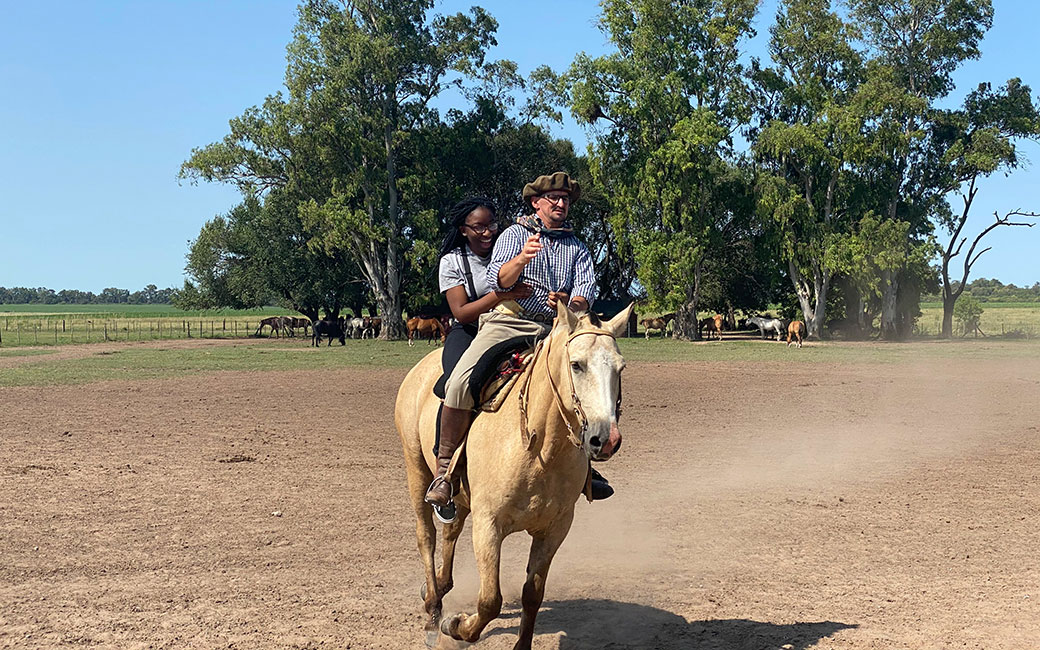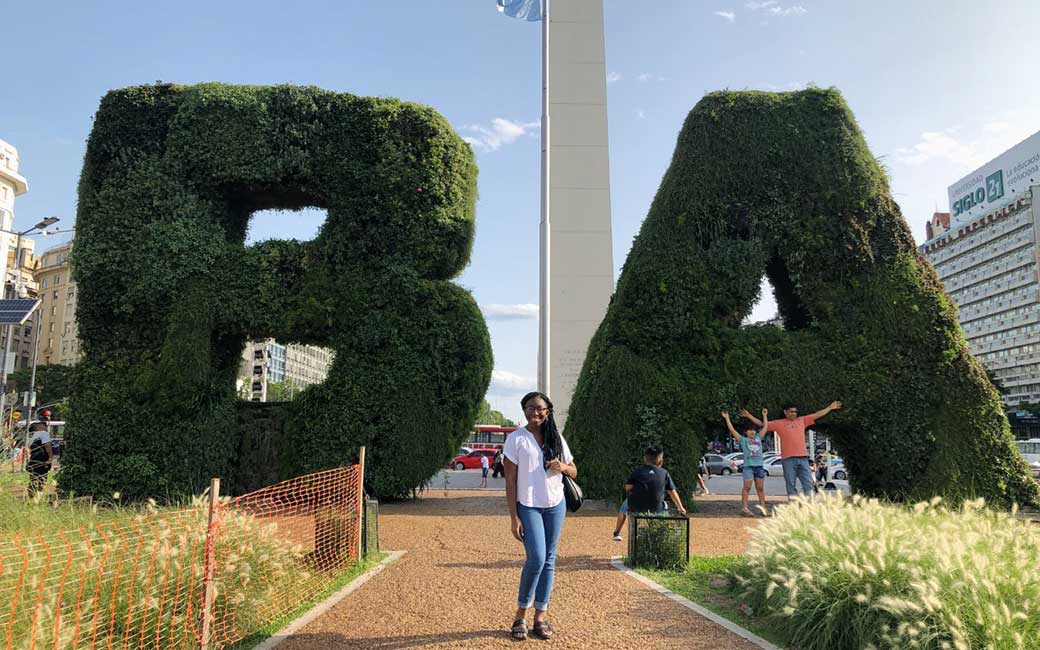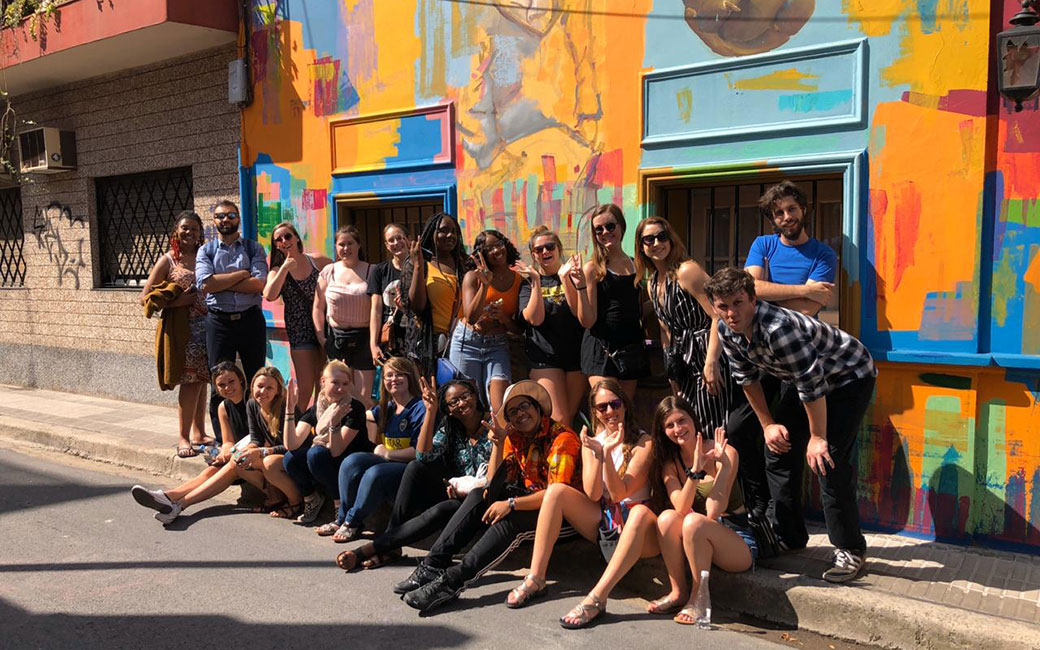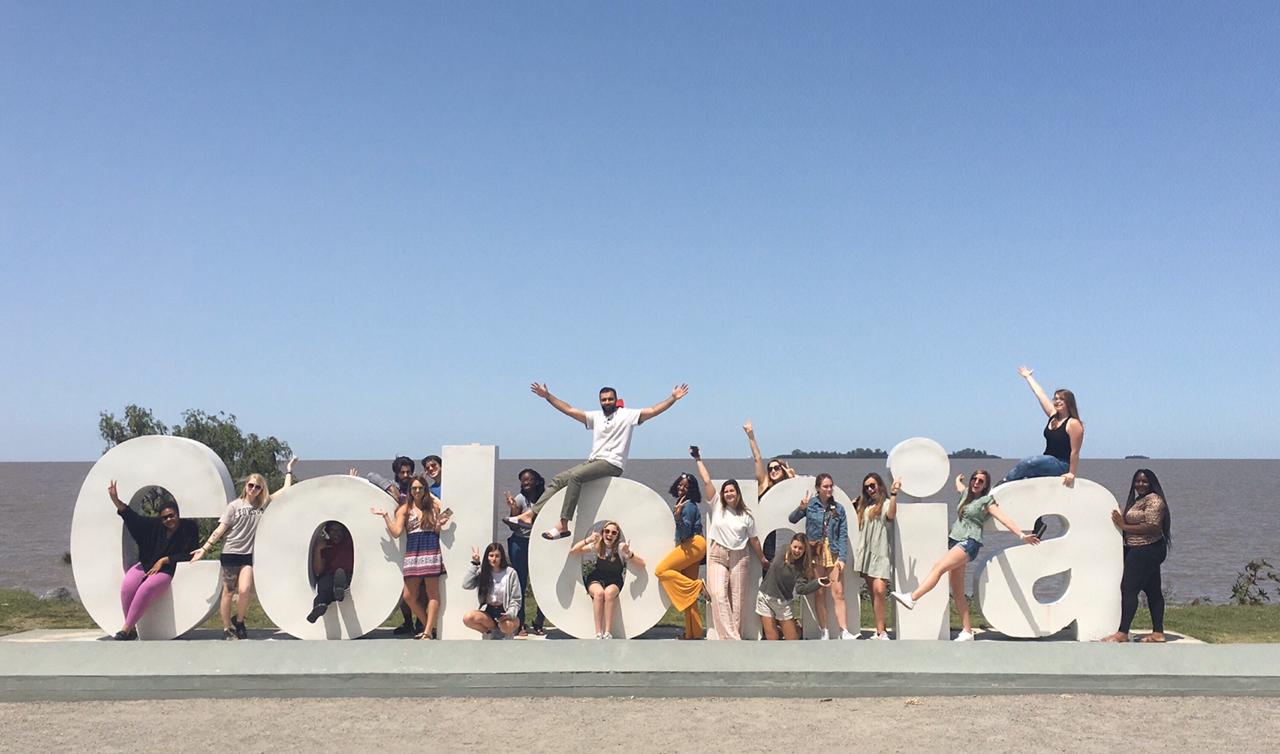
Learning outside your comfort zone
Studying abroad in Argentina allowed Ayomide Fashola to expand her worldview, and now she wants to inspire others to do the same
By Rebecca Kirkman on March 3, 2020

Ayomide Fashola ’21 is no stranger to travel. Born in Nigeria, she has family living around the globe that she visits often. But the junior psychology student at Towson University was still unsure about the idea of studying abroad.
“At first, I thought it would be too expensive, or that people who look like me don’t go there,” recalls Fashola, a resident advisor and former orientation leader.
She decided to embrace the opportunity to study abroad when Psychology Assistant Professor Faizan Imtiaz spoke during one of her psychology classes about a trip to Argentina he would be leading with Assistant Professor Blaire Weidler during the 2020 Winter Minimester.
“I liked the idea of going to a different country, getting college credit at the same time, and seeing different parts of the world.”
Since returning from “Culture and Psychology: Argentina from a Psychological Perspective,” Fashola has become an advocate for the benefits of studying abroad, especially for students of color.
“I would love to see more black students–here at Towson and across the globe–studying abroad more,” she says. “I want to be that person to show people, ‘Hey, you can look like me and you can do it, too.’”
The 17-day trip introduced Fashola and her peers to Argentinian culture and society while exploring the cultural, psychological and organizational differences between the United States and Argentina.
Fashola was struck by the impact of learning about a culture by experiencing it firsthand.
“We could have learned about Argentina here in a Towson classroom. In fact, before we even left, we read articles about Argentina. But being able to actually see and be a firsthand witness to what you have learned before you left, and then actually applying it, is just really, really amazing.”
During the trip, students spoke with Argentinians about their attitudes toward therapy. The conversations reinforced what students read before departing on their trip.
“Over there, there’s no stigma against it at all,” Fashola discovered. “They go to the therapist to talk about work and relationships. So it’s very normalized. But here, normally people associate going to therapy with a mental health issue.”
In less than three weeks, students earned six credits through intensive class time and guest lectures. They also embarked on cultural experiences like museum visits, guided tours, day-long excursions and volunteer work with local nonprofits.
“ I want to be that person to show people, ‘Hey, you can look like me and you can do it, too.’ ”
One experience in particular has stuck with Fashola: the ritual of drinking mate, a caffeine-rich tea made from yerba mate. Traditionally, mate is served to a group sharing the same drinking vessel and a special straw, called a bombilla. It signifies conversation, bonding and hospitality.
“That’s one of my biggest highlights, because they’re so family oriented, and they have such a collectivist culture,” Fashola says. “It inspires me to find more ways to hang out with my family and friends. Actually sitting down with them, and adopting kind of like what they do [with mate] a little bit.”
After graduation, Fashola hopes to pursue a career in student affairs for higher education. “I see myself doing career development in the future, similar to our Career Center, or the Center for Student Diversity, student activities, that type of work.”
Since returning from Argentina, Fashola has gained a sense of confidence and independence that will continue to shape how she learns in the future.
“We could say we’re culturally competent, or we have a big worldview. But then that’s put to the test when you actually go and experience [a different culture] for yourself,” she says. “This experience definitely challenges me to get out my comfort zone again in the future, and travel not just for the sake of going on a vacation, but actually to learn about other people.”
Learn more about studying abroad at Towson University.
This story is one of several related to President Kim Schatzel’s priorities for Towson University: Diverse and Inclusive Campus.

